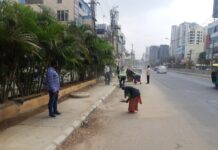New Delhi, The Joint Committee of Parliament constituted to look into the various aspects of the contentious Citizens (Amendment) Bill, 2016 is likely to submit its report by January 7, 2019 during the present session.
The Committee headed by BJP’s Lok Sabha member Rajendra Agarwal met on Monday and discussed clause by clause the Bill that seeks to grant easy Indian citizenship to non-Muslim minorities from Pakistan, Bangladesh and Afghanistan.
“Today we had a clause by clause discussion on the Bill. Some of the proposed amendments were considered, some were rejected. We are aiming to table the report by January 7,” Agarwal told IANS after the meet.
However, he refused to go into the specifics.
The joint committee has members from both Lok Sabha and Rajya Sabha including members from Assam.
Union Home Secretary Rajiv Gauba also deposed before the panel on Monday.
Sources close to the development said the ruling party tried to fervently push for most of its points even inside the Committee, but the government is unlikely to bring the Bill immediately in Parliament.
The All Assam Students Union (AASU) and various other groups in Assam and even the Bharatiya Janata Party (BJP) ally in Assam state government, Assom Gana Parishad (AGP), have been vociferously protesting against the Bill and have warned the government against it.
The Assamese groups see the Bill as violative of the Assam Accord of 1985 and feel that if the Bill is brought, it would bring the whole National Register of Citizens (NRC) exercise being undertaken in the state to a nought.
Meanwhile, the Narendra Modi government has already issued two gazette notifications — Foreigners (Amendment) Order, 2015 and the Passport (Entry into India) Amendment Rules, 2015, to exempt from the application of Foreigners Act, 1946 six minority communities from Afghanistan, Bangladesh and Pakistan who were compelled to seek shelter in India due to religious persecution and entered the country on or before December 31, 2014.
The exempted communities include the Hindus, Sikhs, Buddhists, Jains, Parsis and the Christians. Notably, the notifications exclude the Muslims.
The notifications have exempted members of these communities who came with or without valid travel documents.
Legal experts have also pointed out that the Bill seeks to discriminate on religious lines and hence its provisions are unconstitutional.
The Assamese groups are already preparing to move the Supreme Court on the Bill.









